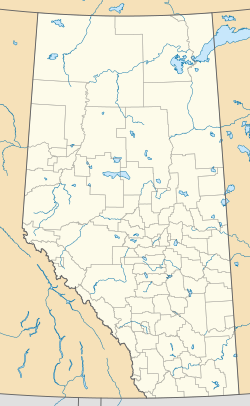| Red Deer Regional Hospital Centre | |
|---|---|
| Alberta Health Services | |
 Red Deer Regional Hospital Centre in the fall of 2015 | |
| Geography | |
| Location | Red Deer, Alberta, Canada |
| Coordinates | 52°15′37.75″N113°49′4.75″W / 52.2604861°N 113.8179861°W |
| Organization | |
| Care system | Medicare |
| Type | General, Teaching |
| Affiliated university | University of Alberta Faculty of Medicine and Dentistry |
| Services | |
| Emergency department | Yes |
| Beds | 345 |
| Helipads | |
| Helipad | TC LID: CRD3 [1] |
| History | |
| Opened | 1904 |
| Links | |
| Website | https://www.albertahealthservices.ca/findhealth/facility.aspx?id=1000342 |
Red Deer Regional Hospital Centre is a district general hospital and is located in Red Deer, Alberta. Alberta Health Services is responsible for the operations of the hospital. [2]

